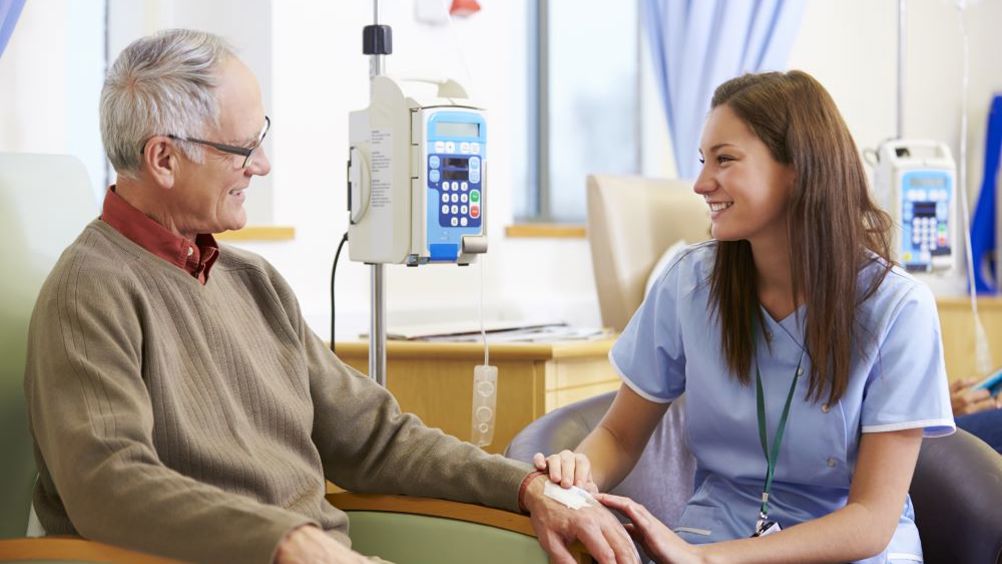Advances in scientific understanding and technological innovations in cancer have added to both the complexity of the disease and the potential to transform our ability to prevent, diagnose, treat and care for people affected by cancer (PABC).
Aspirant Cancer Career and Education Development (ACCEnD) is a new and ambitious multi-partnership, UK-wide programme that seeks to address significant challenges and issues that have faced the nursing and allied health professionals (AHPs) workforce in cancer for many years, and which have been accelerated by the COVID-19 pandemic.
The nursing and AHPs workforce make a critical contribution to caring for PABC and helping them to live well, with and beyond cancer, through:
- Delivering cancer care and cancer services across all healthcare settings, and in supra-regional centres for patients with rarer cancers
- The cancer pathway, from prehabilitation, diagnosis and treatment into rehabilitation, recovery, living with and beyond cancer and end-of-life care.
The backlog of people requiring screening, diagnosis, treatment and care related to cancer, coupled with the shortfall of cancer educated and skilled nurses and AHPs, has amplified demands on an already depleted cancer workforce. Even before the pandemic, numerous calls had been made to address these shortages (NHS England, 2018; Health Education England, 2019; Macmillan Cancer Support, 2021a; 2021b). Since COVID-19, research by the European Society for Medical Oncology. (ESMO) Resilience Task Force collaboration identified significant concerns regarding potential attrition in the oncology workforce, concluding that national and international stakeholders must act immediately to draw up future-proof recovery plans (Lim et al, 2021).
There is a need for decisive, long-term and co-ordinated action to address these issues. No action risks a shortage of cancer nurses and AHPs, and a cancer workforce without the knowledge, skills and capabilities to deliver the care expected by PABC.
The purpose of ACCEnD is to provide guidance and direction about the knowledge and capabilities required by nurses and AHPs who care for PABC in generalist and specialist services in the UK. It aims to:
- Attract nurses and AHPs into a career in cancer care to secure the future specialist workforce
- Develop and promote a nationally agreed, multi-level career pathway and education framework
- Use the agreed career pathway and education framework to ensure the workforce have access to relevant education and development opportunities and enable employers to deliver high-quality services to PABC, support workforce transformation and support staff health and wellbeing
- Enable nurses and AHPs to evidence their skills and knowledge in a national digital portfolio
- Promote the agreed career pathway and education framework by creating a national cancer hub.
To achieve these aims, ACCEnD workstreams will develop an agreed career pathway and education framework, a digital portable e-portfolio and inform education and training programmes for:
- Pre-registration nursing associates, nursing and AHP students
- Registered nurses and AHPs in generalist and specialist roles in cancer services at all levels.
The ACCEnD programme will:
- Incorporate different learning opportunities: workplace-based, accredited modules/courses, e-learning, action learning sets, coaching, professional and academic supervision
- Promote attainment of specialist knowledge and skills at all levels of practice
- Focus learning related to the four pillars of specialist cancer-focused practice: clinical, leadership, research/evidence-based practice, and education
- Provide opportunities for interprofessional learning, uni-professional learning and role-specific learning
- Align to national frameworks for advanced level practice.


